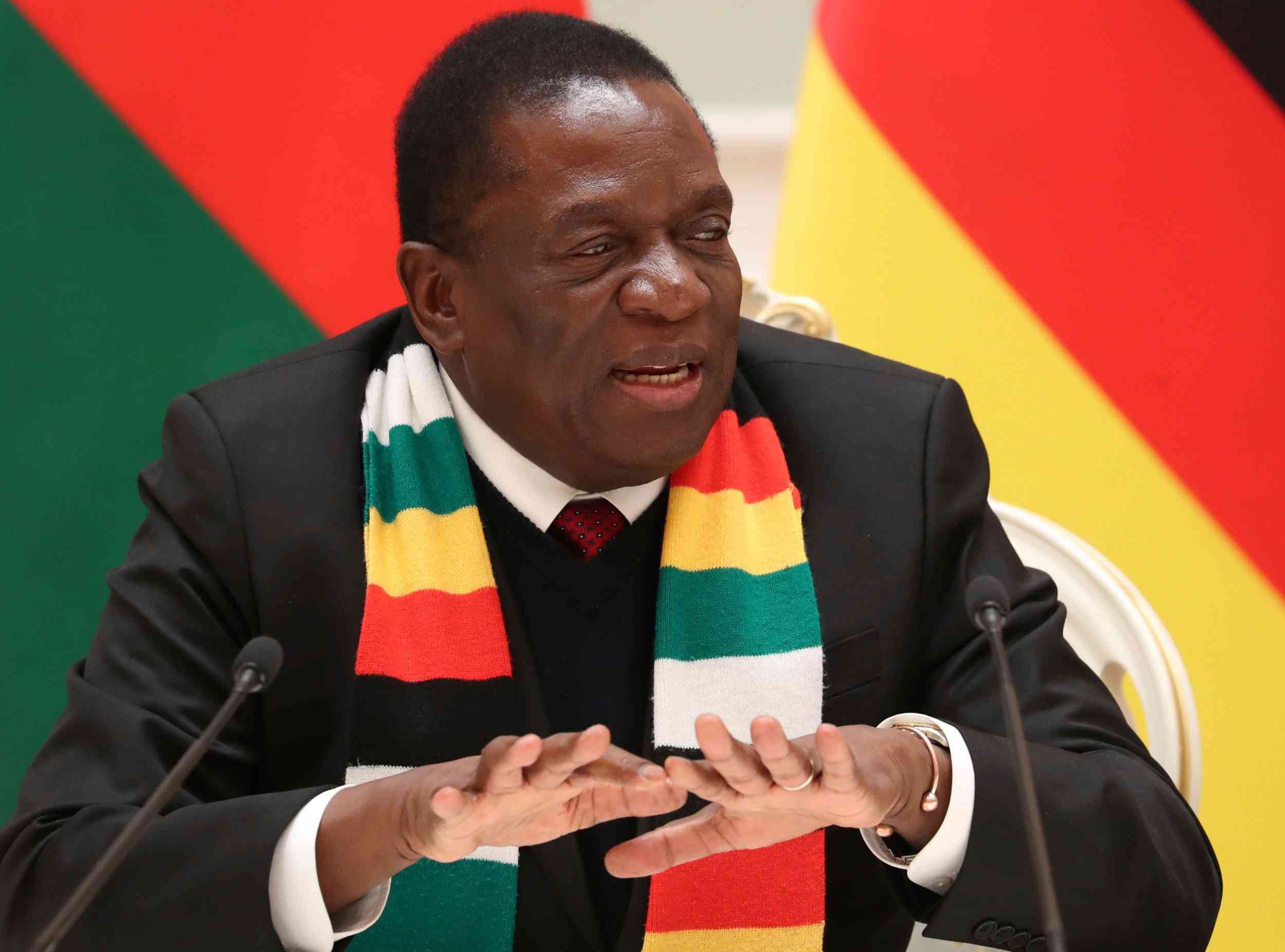
ZIMBABWE’s economy never ceases to amaze. After President Emmerson Mnangagwa declared a nationwide lockdown to fight COVID-19 which has so far claimed three lives out of the 18 confirmed cases, two paradoxes emerged.
On the one hand, rates on the alternative market (read black market), which were almost touching ZWL$50 to the greenback, started receding to levels around ZWL$32 to the United States dollar.
The most logical explanation could be that the 21-day lockdown, which ends at midnight on April 19, 2020, dampened the demand for foreign currency (forex), which is usually driven by non-essential services that are not prioritised for forex allocation on the interbank market where the rate has been fixed at ZWL$25 to the US$.
Surprisingly, prices on supermarket shelves have spiked — that is if media reports are anything to go by, despite the above developments in the foreign exchange market.
In a country where the bulk of the workforce is living below the breadline and where poverty levels are estimated to be anything above 80%, it is callous to raise prices even by a small fraction of a percentage, more so when the country’s 14 million people are desperate to survive COVID-19.
Businesses operating in Zimbabwe have never run short of reasons to justify price increases. The in-thing has always been to heap the blame on the increase in rates on the black market, and for a good reason also. Another accusing finger has been pointed at the fiscal and monetary authorities for the excessive money supply, which engender inflation.
Indeed, changes in exchange rates have a direct effect on import prices, moreso for an economy such as ours which is heavily reliant on imports, with neighbouring South Africa making up the bulk of our imports. The pass-through from exchange rates into import prices for Zimbabwe is thus significant, with estimates ranging between 15 and 40%.
Naturally, an appreciation in the value of the local currency should result in lower prices unless if there are other compelling factors to off-set the positive pass-through effects. This raises the important question; are we missing something considering that recent monetary developments render preposterous the other raison d’être normally cited for the price increase?
- Chamisa under fire over US$120K donation
- Mavhunga puts DeMbare into Chibuku quarterfinals
- Pension funds bet on Cabora Bassa oilfields
- Councils defy govt fire tender directive
Keep Reading
The Monetary Policy Statement released by the Reserve Bank of Zimbabwe (RBZ) in February this year showed that the implementation of the monetary targeting framework had resulted in month-on-month reserve money growth declining from 19,1 % in November 2019 to 7,9% in December 2019, and this trend is expected to continue into the current year. Subsidies on fuel, electricity, grain and other essentials, particularly in the first half of 2019, had caused an increase in reserve money, which rose from ZWL$3,3 billion at the end of December 2018 to an estimated ZWL$8,8 billion in the last week of December 2019.
As indicated in the latest International Monetary Fund Article IV Consultation Report, subsidies on electricity and fuel, via forex allocation at preferential rates), have been discontinued while the gold incentive is being terminated and replaced with a credit support scheme funded by the government, thus eliminating quasi-fiscal activities by the central bank.
Further, the need to support domestic cash transactions had also seen currency issued by the RBZ rising from ZWL$0,5 billion in December 2018 to ZWL$1 billion in December 2019, thus partly contributing to growth in reserve money.
The central bank is also expecting money supply growth in the economy to be reduced to annual growth levels of around 60% by end of 2020 in view of the tight monetary policy stance that the bank has adopted, signified by a strict reserve money programme and the elimination of subsidies referred to earlier.
Elementary economics schools us that there are two sources of price increases whereby demand-pull factors are the most common cause.
This occurs when consumer demand for goods and services increases so much that it outstrips supply and producers can’t make enough to meet demand.
To avoid selling out under such circumstances, producers raise their prices. This may also occur in a growing economy whereby people tend to spend more.
Price increases also occur as a result of cost-push factors, which occur when production costs (wages, raw materials etc) increase and there are supply shortages combined with enough demand to allow the producer to raise prices.
None of these factors exist in Zimbabwe at the moment to justify the extortionate price increases being passed on to the consumer. Workers are barely surviving due to the slave wages being paid by most employers despite the fact that their companies are increasing prices or charging products and services in forex. Even if the exchange rate moves, the adjustment in prices cannot be on a 1:1 basis.
What is happening in our economy requires our behavioural economists to figure out the X-Factor behind the episodes of exchange rate spikes that usually cause our prices to shoot through the roof as well as what now appears to be an inherent culture of price increases on the part of our business people which is becoming a self-fulfilling prophecy. Unashamedly, the same businesspeople who have laid-off staff on account of the impact of COVID-19 have appealed to government so that they can be bailed out by taxpayers.
Even the self-proclaimed policemen of the global financial system, the IMF, is getting it wrong in its analysis of Zimbabwe’s moribund economy by papering over the cracks without unmasking the irrationality of human nature hobbling the country’s economy.
A few home truths may bring us closer to the answer.
To start with, the country is deep in the throes of serious illiquid conditions to be able to drive forex rates to current levels with the majority of the population surviving on less than US$1 a day. It takes someone with an embarrassment of riches to drive the rates beyond the limits of morality.
Secondly, it beggars belief that any ordinary citizen could beat with impunity the stringent price monitoring measures put in place by government. In both cases, that should tell us that the culprits are among the elites who are running cartels whose shenanigans are beyond the reach of the long arm of the law.
If the Zimbabwe Anti-Corruptions Commission, the RBZ’s Financial Intelligence Unit and the police are to be taken seriously, this might as well be their starting point to unravel the primitive greed destroying our economy with the tacit approval of those who are supposed to be condemning the practice.
Failure by these national institutions to unmask this X-Factor might result in the Zimbabwe’s economy relapsing into the horrors of 2008 when the country’s currency disappeared from the financial system as a result of hyperinflation.
Our politicians should avoid the temptation of getting into bed with these mafias who have mastered the art of entrapping them through donations and business partnerships with their family members. It’s more about interests more than anything else.
Those in power need to realise that at some point their activities will bring the economy down together with them.
And when that happens, these crocked businesspeople will simply move on to their next targets. Let us not forget that in yesteryear, they were friends with former president Robert Mugabe, along with his cronies, only to desert them in their hour of need. Now they are using the same modus operandi.
Leaders must have a long-term view and ensure that they protect the ordinary citizens and avoid aligning themselves with dubious characters that are impoverishing the citizens, lest they will be painted with the same brush. Despite his excesses, Mugabe understood this well to the extent that he would put price controls, which we don’t recommend, to cushion the masses. Businesses will always find a way to survive but the same cannot be said about individuals.
The current situation is unsustainable and is a potential source for instability if it goes unchecked as the poor have nothing to lose and are dying anyway. That explains why there doesn’t seem to be much care about COVID-19 among that group of the population.
Our leaders know these culprits, and they would have arrested them a long time ago if they were not imbedded with them and the ruling Zanu PF party. The governing party needs to cleanse itself of these stinking vultures that are not doing it any good yet it’s the leadership that bears all the blame.
Don’t say you were not warned. It is important for leaders to ensure that their spouses and children live well and peaceful in their mother country after they die to avoid situations whereby revenge is meted upon their surviving family members for their complicity in pillaging the national economy.
Nathan Gurira is a neoclassical economist and expert on corporate governance. He writes here in his personal capacity. He can be contacted at [email protected]










